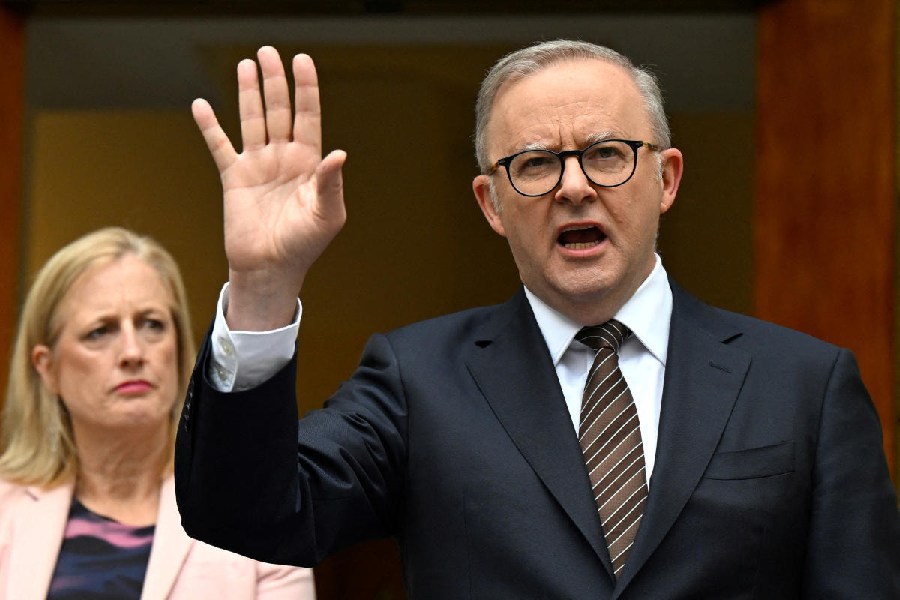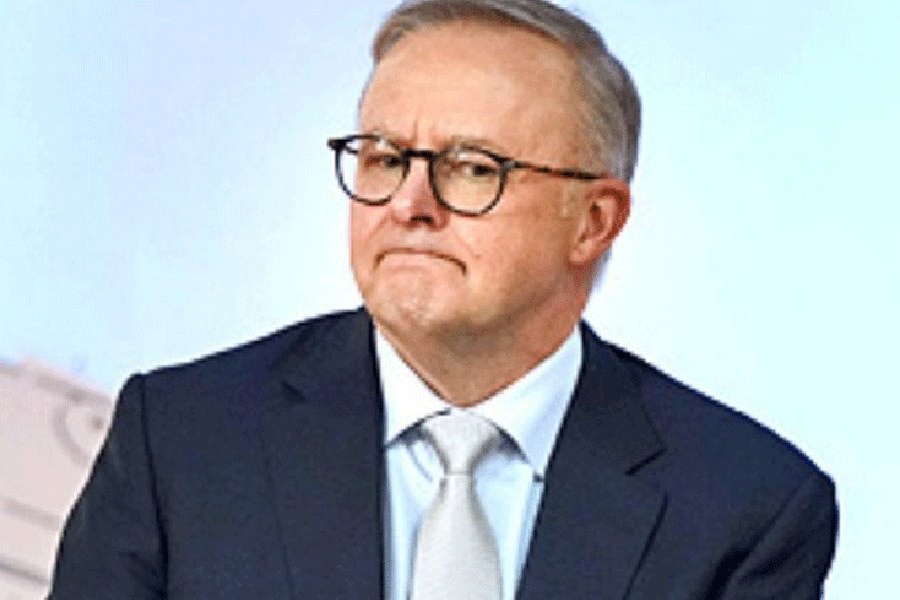Australia's Prime Minister Anthony Albanese has pivoted to election mode, hoping to win back voter confidence that his government can tackle high living costs, particularly housing, after clearing the decks with a torrent of legislation.
The burst of 31 laws enacted in a midnight session on Thursday - notably a world-first social media ban for children - raised speculation that Albanese may announce before February that he is calling a national election.
His centre-left Labor government, which took power in 2022, faces a tight race against the conservative Liberal-National coalition in the election that must be held by May 17.
The prime minister's public support has sunk in opinion polls as households face pressure from soaring housing, energy and food costs amid global inflation.
"We know that we have more work to do on cost of living, but we're making progress," Albanese told a press conference on Friday. "We understand the pressure that people are under as a result of the global inflation surge."
The message to parents from the social media ban, he said, is: "We've got your back."
Australian governments typically avoid election campaigns during the summer holiday from December to Jan. 26, but Albanese told lawmakers this week to start soft campaigning.
His political situation is "perilous" after two years of high inflation and rising interest rates that have exacerbated mortgage costs, said Mark Kenny, director of the Australian Studies Institute at the Australian National University.
Australia's central bank chief said on Thursday that core inflation was too high to allow for rate cuts in the near term, all but ruling out relief for borrowers at its next policy meeting in December.
"The government has been under extreme political pressure over the cost of living and the election will see no let-up on that," Kenny said. "However, Anthony Albanese ends the parliamentary year with several key wins on key pieces of legislation – most pointedly on social and affordable housing."
'Too close to call'
The burst of laws enacted on the last day of the parliamentary sitting included housing and migration reform and measures on the central bank and the ban on children under 16 using social media.
Albanese said the ban, which has bipartisan support, responds to a key parental anxiety and will be talked about on the sporting field sidelines over summer, while the reforms to assist home buyers and build more rental properties showed action on Australia's top affordability worry.
An election now would be "too close to call", according to a poll of voter intentions by Roy Morgan this week, showing Labor on 51%, just ahead of Liberal-National on 49%. Other recent polls have shown Labor falling behind.
A Redbridge survey this week found 57% of voters felt worse off than when Albanese was elected, while half of voters think the government is not focussed on the right priorities, compared to one-third who said its focus was right.
Albanese told the Australian Broadcasting Corporation on Thursday he expected parliament to return in February.
Lawmakers and analysts say, though, that he may call an early election to avoid delivering a budget in March, which has been forecast to fall into deficit after two successive surpluses.
Liberal leader Peter Dutton, previewing his party's election attack on inflation, told parliament on Thursday that Albanese's economic policies have driven up the cost of everything for households.
Immigration has also historically ignited election campaigns and pushed votes to conservative parties.
Labor's changes to immigration law, criticised by the minor Greens party and human rights groups, include paying other countries to take non-citizens convicted of crimes and tougher powers of search and seizure in immigration detention.
Albanese said on Friday that "our migration system needs to be robust and needs to be not manipulated" to support multiculturalism.











